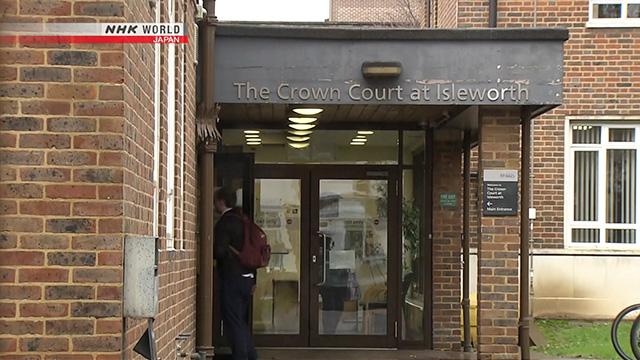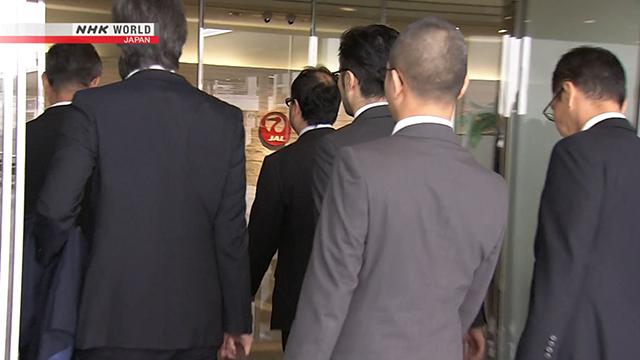Sentencing of JAL co-pilot

In October, JAL co-pilot Katsutoshi Jitsukawa, who was scheduled to go on board a flight from London's Heathrow Airport to Tokyo's Haneda Airport, was suspected to be drunk and tested by local police before the flight. He had an alcohol level of 0.93 milligrams per liter of breath, which is 10 times Britain's legal limit. The flight was supposed to have 3 pilots on board but it had to take off with 2 after a one-hour delay.
The arrested co-pilot admitted to the company's in-house investigators that he had drinks in a restaurant and in his hotel room the night before the flight. He said he drank more than 1.5 liters of wine and more than 1.8 liters of beer.
In the sentence handed down Thursday in Isleworth Crown Court in London, the judge noted the defendant could have placed the safety of all persons on board the flight at risk for 12 hours and that the potential consequences could have been "catastrophic."
Why the excessive drinking was overlooked
Before the police inspection, the pilot had taken the company's pre-flight test, but no alcohol had allegedly been detected. The pilot's excessive drinking surfaced when the bus driver who drove the crew to the aircraft noticed a smell of alcohol.

JAL uses 2 types of alcohol detectors: conventional breathalyzers and a more sophisticated device with a straw to blow into, but the conventional type was used in this instance. The 2 fellow pilots said they did not notice the smell of alcohol as the co-pilot was trying to keep his distance.
JAL is not the only one troubled by drinking problems

Excessive drinking by pilots has also been troubling other Japanese airlines. In October, a flight captain of an ANA-affiliated carrier consumed alcohol in Okinawa until he lost his memory the night before his flight, becoming unable to carry out his duties.
A Skymark pilot also missed his flight due to heavy drinking the night before, and had to be replaced by another pilot at the last minute. Japan Air Commuter, a subsidiary of JAL, has also had to change pilots because of excessive drinking in late November.
Preventing the problem
The United States, Britain and many other countries have standardized numerical limits for breath tests. Japan, on the other hand, has civil aviation laws that ban air crews to go on board under the influence of alcohol, but no specific government-set limit for alcohol consumption.
Following the series of problems, NHK interviewed all 25 domestic airlines providing regular flights and found that 8 of them were either not carrying out pre-flight breathalyzer tests at all, or were only doing so occasionally. Although Japan's aviation laws prohibit pilots from flying under the influence of alcohol, there is no specific rule on testing methods. The JAL pilot's excessive drinking was overlooked, even though a breathalyzer test was conducted.
Carriers are trying to take their own preventive measures. JAL and ANA have decided to put in place sophisticated breathalyzers at all domestic and overseas airports at which they provide flights. ANA is also preparing to limit the amount of alcohol its pilots can consume 12 hours before a flight to 40 grams, which is about 2 bottles of beer.

The authorities have conducted snap inspections to see whether airlines are carrying out alcohol tests properly. The government is also planning to hold a review meeting with experts to draw up standards for pilots' drinking, including making alcohol tests mandatory, by the end of this year.

